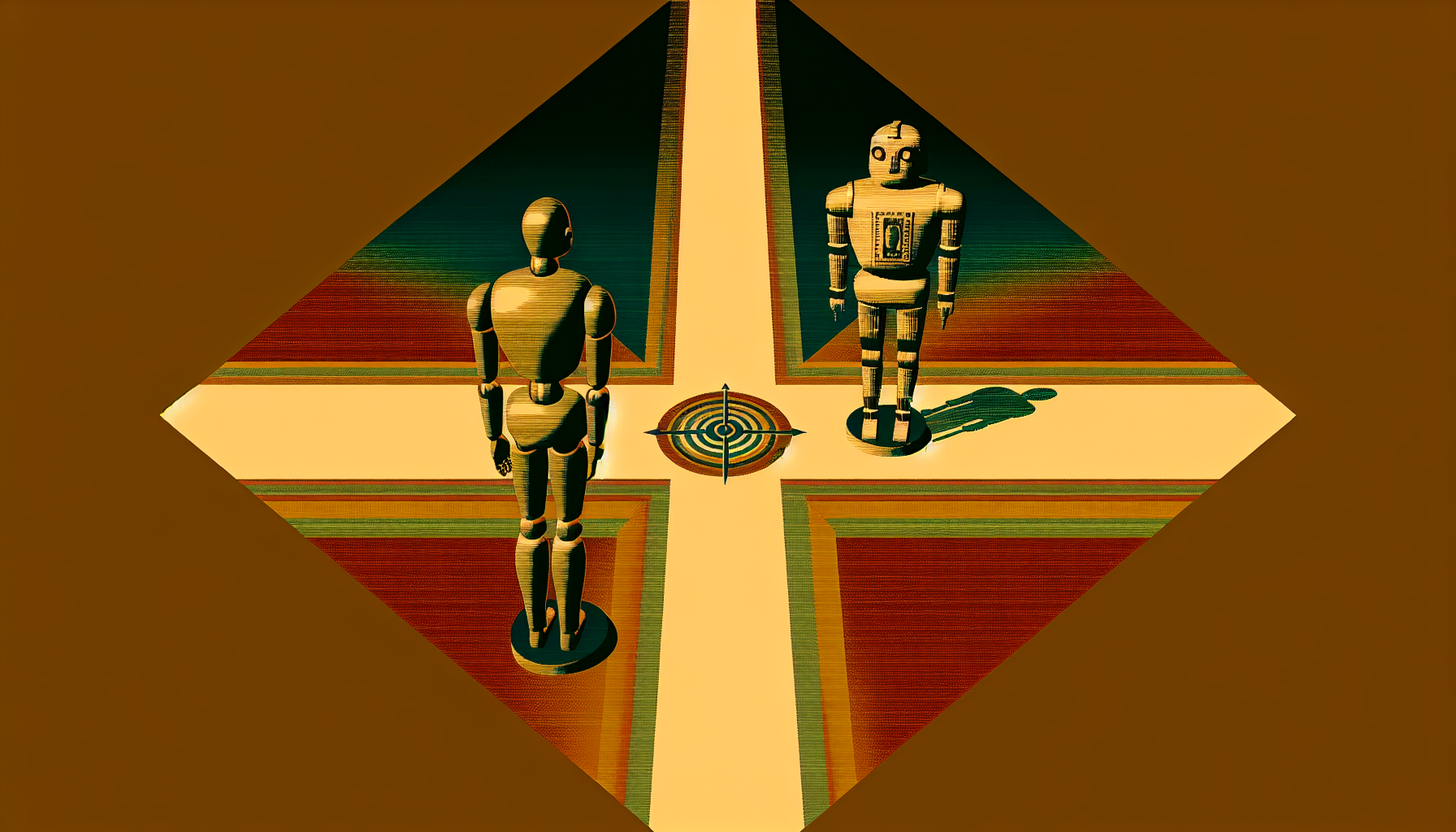In the bustling world of artificial intelligence, one might imagine a panel of wise, sage-like machines, much like benevolent judges from a science fiction novel, sitting down to deliberate on the nature of ethics. Alas, AI hasn’t quite reached the level of moral arbiters yet, but it does bring us to an intriguing crossroads: the blending of artificial intelligence with moral philosophy, a juncture where bytes meet the moral compass of humanity. How do we navigate this intersection, where AI might just redefine what we consider right and wrong?
Understanding Moral Philosophy: A Quick Primer
Before we let AI loose in the moral playground, let’s pause for a refresher on moral philosophy. Traditionally, it’s been a human-centric discipline, one that ponders right and wrong, good and evil, and the virtues of a life well-lived. It’s the kind of thing that makes you ponder whether to help your neighbor carry groceries or finish binge-watching your favorite series.
Moral theories often get divided into consequentialism, which considers the outcomes of actions; deontology, which emphasizes duties and rules; and virtue ethics, which focuses on character and virtues. Now, how do these age-old concepts stand up when an AI enters the fray?
AI: A Trolley Problem in the Digital Age
Consider the timeless trolley problem: A runaway trolley is barreling toward five oblivious workers. You can pull a lever to switch the trolley onto another track, where it will hit only one worker. It’s a conundrum that’s caused much handwringing in philosophy classes.
Now, bring AI into this moral quandary. Self-driving cars are, in a sense, the modern trolley problem. These vehicles must make split-second decisions that involve the safety of passengers and pedestrians alike. Should an autonomous car prioritize the life of its passenger over a pedestrian’s? Whose ethical values are encoded into that decision?
Algorithms with a Moral Compass?
AI, for better or worse, doesn’t possess consciousness or moral intuition. It’s not about to have a moral epiphany like an Ebenezer Scrooge of microprocessors. Therefore, its “moral” decisions come down to the developers and data underpinning its learning algorithms. Who gets to decide the moral framework, and is it even possible to create universal ethical standards for AI?
While some view AI as an impartial decision-maker, there’s a glitch in the matrix: AI systems learn from data generated by humans, who are, alas, magnificently flawed and biased. Thus, the potential for skewed outcomes is ever-present, reflecting human prejudices. It’s a bit like asking a parrot to give weather forecasts; it can repeat what it’s told, but its understanding is, well, parrot-like.
Redefining the Concept of “Right” and “Wrong”
The implications of AI in moral philosophy are far-reaching. Its role might one day expand from decision support to active decision-making in complex scenarios currently dominated by humans. This raises the question: are we on the brink of a paradigm shift in our understanding of morality?
As we have throughout history, humanity evolves its moral and ethical standards. If AI alters human interaction, communication, and decision-making, perhaps our moral understanding will likewise morph. Imagine a budding bromance between Aristotle and Alan Turing trying to create ethical guidelines that account for both human intuition and computational logic.
A potential future scenario might involve an AI that doesn’t just follow human ethical guidelines but helps shape them. This doesn’t mean we concede ethical discussions to our robot overlords. It suggests that, in a world leaning increasingly towards interconnected digital intelligence, the notion of morality extends beyond the individual conduct of humans, intersecting with artificial entities.
The Role of Human Oversight
Lest we imagine AI leading a parade down the moral yellow brick road, human oversight remains crucial. Developers, ethicists, and lawmakers must collaborate to ensure AI continues to serve humanity’s best interests, grounded in ethical principles reflecting our diverse and often contradictory values.
It’s not so much outsourcing morality as it is symbiosis. It’s essential to establish mechanisms where human judgment complements AI capabilities. In the same way, chefs use recipes, human oversight ensures AI “chefs” don’t mistake salt for sugar—or in this case, bias for balance.
Conclusion: A Light-Hearted Reflection
In blending AI with moral philosophy, we unlock a fascinating dialogue, imagining a future where robots not only “do no harm” but perhaps ponder what harm even means. While we’re still a ways off from creating AIs who can host their own ethics symposium, we stand at the dawn of an era where understanding and redefining right and wrong is not just philosophical rumination but a practical necessity.
So, next time you contemplate philosophical concepts over your morning coffee, remember that somewhere, an AI might be wrestling with an algorithmic version of the trolley problem. After all, who knew ethics needed a reboot—or a gigabyte, as it were?

Leave a Reply